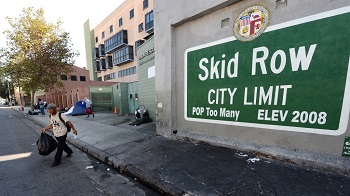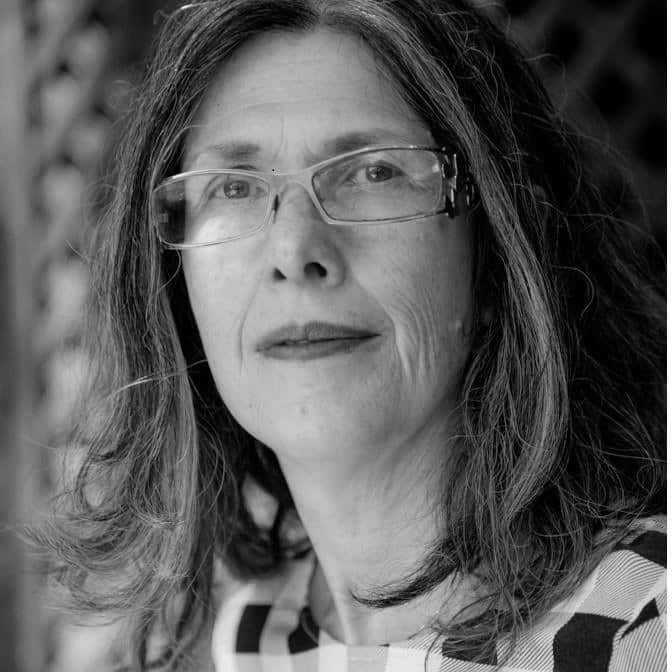
Didn’t it feel good to see the rain come down this winter, healing our drought, filling our reservoirs and river, bringing the tangy scent of petrichor? Wasn’t it sweet to curl up under a blanket, falling asleep to the soothing rumble of rain on the roof?
But what if there was no roof? What if you had no home, not even a car, and the shelters were full or too far away? What if there were children with you looking for your protection? If all you owned was what you could carry or push in a shopping cart and the bit of tarp you were able to get wouldn’t keep everything dry?
We Jews are obliged to think about things like that. Not only when the homeless person on the corner turns out to be someone we know (so many people are one paycheck away from homelessness) but also when that person is someone we’ve never seen before. Too often, people without homes move unacknowledged and untouched through the world of the housed like emissaries from some other reality, a ghost world interlaced through ours. We Jews are told, “You shall not oppress a stranger, for you know the feelings of the stranger, having yourselves been strangers in the land of Egypt” (Exodus/Shmot 23:9) and “Love/befriend the stranger, because you were strangers in the land of Egypt.”(Deuteronomy/Devarim 10:19)
Yes, as autonomous Americans we might bristle, but the Torah is not just telling us what to do, it’s telling us how to feel. Our tradition requires that we not only act to assist the stranger, the widow and the orphan—the most powerless among us—but also to accept the pain of empathy. We are to open our hearts to the world’s suffering. As the Kotsker Rebbe teaches, “There is nothing so whole as a broken heart.”
The only way to live with a heart filled to bursting is through action, through doing what we can. Our tradition is not something we observe only every week in synagogue on Shabbos, it is how we live each day.
We learn, in Deuteronomy/Devarim 15: 7-8, “If there is among you someone needy, one of your kin, within the gates of the land that HaShem your God is giving you, do not harden your heart and shut your hand against your needy companion. Rather, you must open your hand and lend him sufficient for what he lacks and is wanting.” The rabbis interpreted this instruction in a very concrete way to do with housing. Talmud Bavli Ketubot 67b tell us, “Our Rabbis taught: If an orphan applied for assistance to marry, a house must be rented for him, a bed must be prepared for him along with utensils he needs and then he is married, for it is said in Scriptures, ‘Sufficient for what he lacks and is wanting.’ ‘Sufficient for what he lacks’ refers to the house; ‘is wanting’, refers to a bed and a table.”
Our Talmudic rabbis, the founders of our way of life, understood community as a web of relationship and mutual obligation. They understand that, even in our unredeemed world of rich and poor and unpredictable fortune, there is a level below which we should not allow anyone to descend.
Rabbi Doctor Aryeh Cohen, Rabbi-in-Residence for Southern California’s Bend the Arc chapter, explores this in his essential book of Talmudic analysis Justice in the City. He shows how the rabbinic community of mutual obligation and acknowledged interdependence became the normative Jewish model for city life. As members of a polity, we are obliged to act in ways that reflect our Jewish values.
To act, we need to be informed. So, through the lens of hard cold numbers, what is the housing situation in our city?
At least 26,000 people in the city of Los Angeles are homeless, and 300,000 families are one emergency away from losing their homes.
60% of people in our city who do have homes are renters, which would be fine except that the rent is too high. As of March 2017, one bedroom apartments in Los Angeles rent for $2243 a month on average and two bedroom apartment rents average $2978.
What can be done? As a city, we’ve made steps toward addressing the problem. Last year, voters approved Proposition HHH to provide $1.2 billion for safe, clean housing and supportive services to lift people out of desperation and put them on the road to a better life and Proposition JJJ to ensure that developers who want zoning changes for new housing will hire local workers, including veterans, and include affordable and workforce-priced housing in their developments.
We can do more. The Mayor has proposed a Linkage Fee on new developments to create a dedicated fund for affordable housing in our city. Neighboring cities, such as Pasadena and Santa Monica, already charge such fees as do major cities throughout the country, and they are not driving developers away. It is time for us to reach out to our councilmembers and tell them to support this fee. We taxpayers have already pledged to contribute more. Why should not developers, who benefit from our city, contribute to making it better for everyone?
Richard Bloom, a California legislator, has introduced a two-year bill to repeal Costa-Hawkins, the state law that blocks cities from creating effective rent control. He and other legislators have also brought AB 1505, a bill to allow cities to require affordable housing units in new developments. If you support AB 1505 and 1506, please let your state representatives know.
When our ancestors first came to this country, city life, with all its dangers and difficulties, offered a way to survive and then thrive, to preserve our tradition while learning to be part of this country. Rising rents threaten to take that opportunity away from this generation’s immigrants. Let’s make sure that doesn’t happen.























 More news and opinions than at a Shabbat dinner, right in your inbox.
More news and opinions than at a Shabbat dinner, right in your inbox.